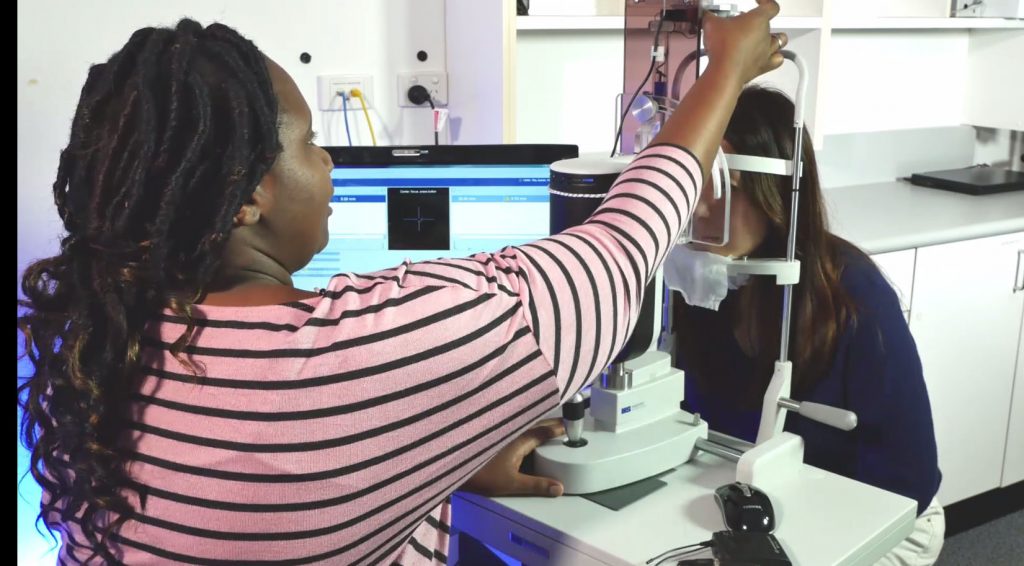By Lisa Nivison-Smith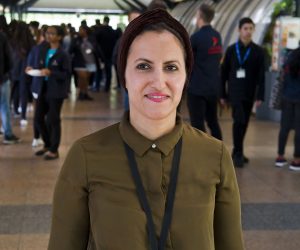
From drawing chemical structures on the back of Panadol packets when she was a little girl to now developing drugs which may replace antibiotics, PhD candidate Basmah Almohaywi, has come a long way on her science journey. Originally hailing from Saudi Arabia, Basmah moved to Australia to pursue a career in research in medicinal chemistry and now works with renown chemists at UNSW, developing antimicrobial agents. When she is not researching, Basmah is playing with her beautiful daughters or working on inspiring other children to find science.
1. Tell me a little about yourself. How did you end up at studying a PhD at UNSW?
I have been interested in chemistry ever since I was little. I remember looking through the leaflets in the boxes of prescription medications and being fascinated by the chemical structures and their long funny names. I would even look carefully at the structures of every medication and try to draw them on a scrap paper.
At school, I gradually became more interested in organic chemistry as well as the chemistry of our body (biochemistry) and biology. This led me to do a Bachelor of Science in Biochemistry at King Abdul-Aziz University in my home country of Saudi Arabia. I then came to Australia and did Masters at the University of Tasmania in Pharmaceutical Science and research in medicinal chemistry. I really liked this research area so I decided to do a PhD in this area too.
2. Your PhD research looks at designing new antimicrobial agents. What made you chose this area of research?

I really like medicinal chemistry and the idea of developing drugs and molecules to help people. This Phd project was particularly attractive as it looked at creating alternatives to traditional antibiotics which had the potential to revolutionise healthcare.
Specifically, I am creating molecules which disrupt the way bacteria communicate with one another. Bacteria can communicate using a method called quorum sensing to act as a whole group rather than single cell organisms and cause disease. By inhibiting quorum sensing we can potentially stop bacteria making people sick. Better still, these treatments introduce no selective pressure so unlike antibiotics there is no risk of evolving ‘super bugs‘.
3. People often think a PhD is just about learning how to do research. Is that true?
Definitely not! A PhD involves learning a lot more than learning the scientific method. Often most experiments don’t work the first time (or the second or third) and we need to do alot of trial and error. Therefore, a PhD teaches you patience and patience and more patience!
PhDs also often involve doing many activities at once so learning time management is crucial. I like to set up a weekly plan every Friday with ‘an everyday time-line’. Sometime things go as planned and sometimes not so I just try my best to stick to the plan or modify it if needed.
Personally, I have also had to learn how to manage work life-balance. Doing PhD while having two growing kids is very challenging as I often spend time doing research when I would usually play with them. Sometimes you have to find a way to deal with that inner conflict to manage time between work and kids.
4. We know PhD’s can be stressful, what do you like to do to relax?
I spend time with my daughters, taking them to park, swimming, exercising, watching movies and going to the library and museums. I also try to give myself time to reflect in silence and generally meditate for 10 to 20 mins before I go to sleep.
5. What advice would you give others doing or considering a PhD?
Don’t settle for any project. Make sure you do your research to find a research area that really fits your interests. This is not always easy but it will make a big difference in the long run.
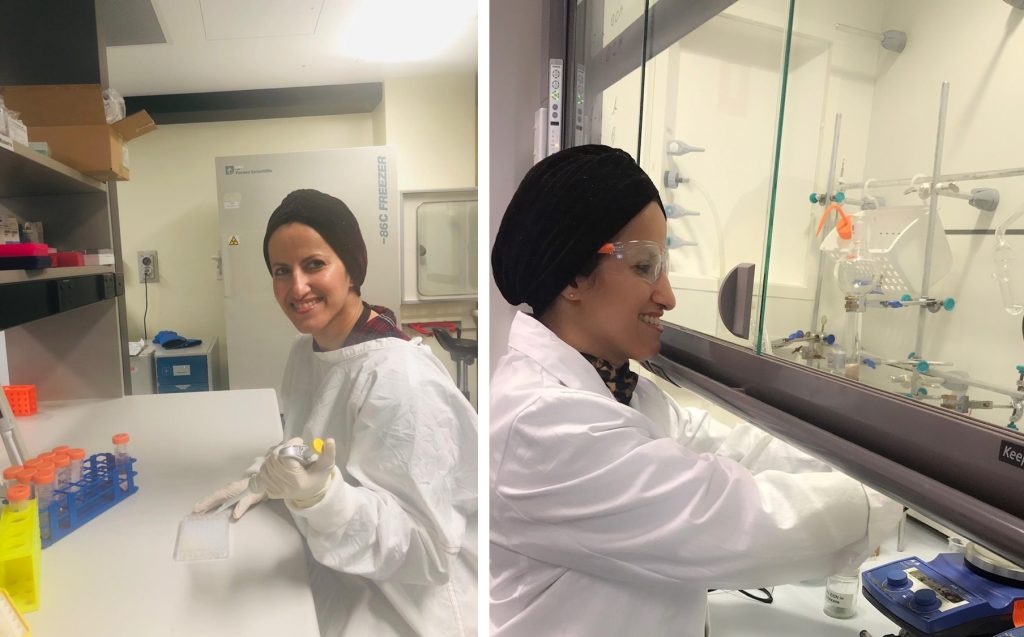
6. Why did you join the UNSW Women Science Champions program?
I was inspired by Dr Stephen Aldous during my master at the university of Tasmania when he was teaching medicinal chemistry to pharmacy students before retiring on that semester. Whenever he introduces a concept about medicinal chemistry he would deliver it the simplest way and he would talk to us with lots of love to the subject. During his lectures, I was 100% conscious and astonished to everything that he taught us.
I really want to be able to help introduce young children to science and inspire them to consider science in their future like Dr Aldous did for me. The program was an opportunity for me to develop my personal skills to be able to do this effectively. I love now being a UNSW women science champion and engaging with children and science.
Follow Lisa on Twitter

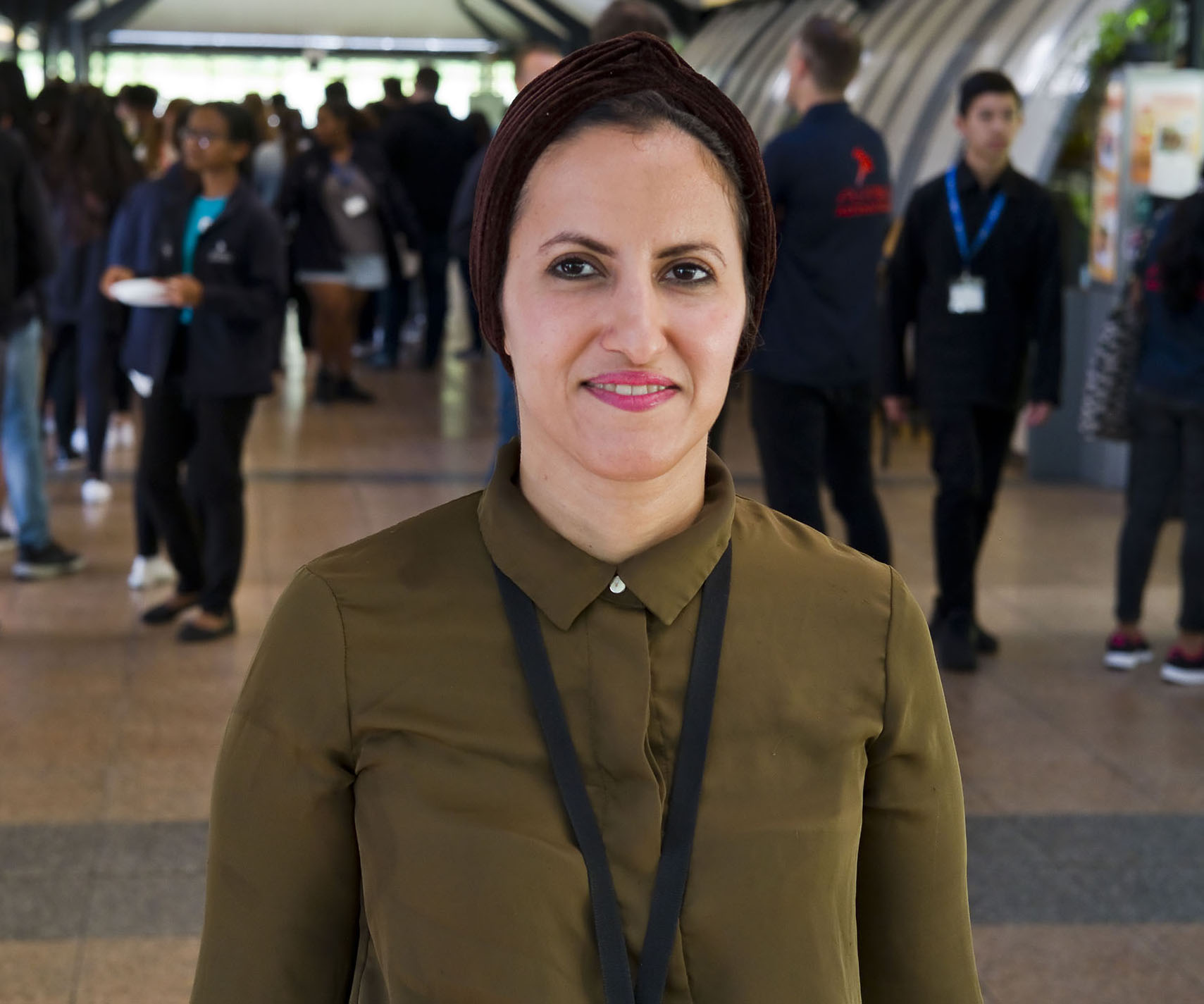

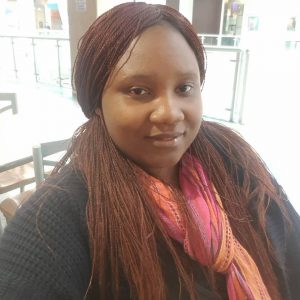 Meet Ornella Mekountchou. Hailing all the way from Cameroon, Ornella has been interested in maths and science since her childhood. Her interests led her to India where she graduated as an optometrist from the Bausch and Lomb School of Optometry in 2013. She returned to Cameroon, joining the teaching team of a training school in Yaoundé as optometrist lecturer before deciding to travel the world again, this time heading to Australia to pursue her PhD.
Meet Ornella Mekountchou. Hailing all the way from Cameroon, Ornella has been interested in maths and science since her childhood. Her interests led her to India where she graduated as an optometrist from the Bausch and Lomb School of Optometry in 2013. She returned to Cameroon, joining the teaching team of a training school in Yaoundé as optometrist lecturer before deciding to travel the world again, this time heading to Australia to pursue her PhD.